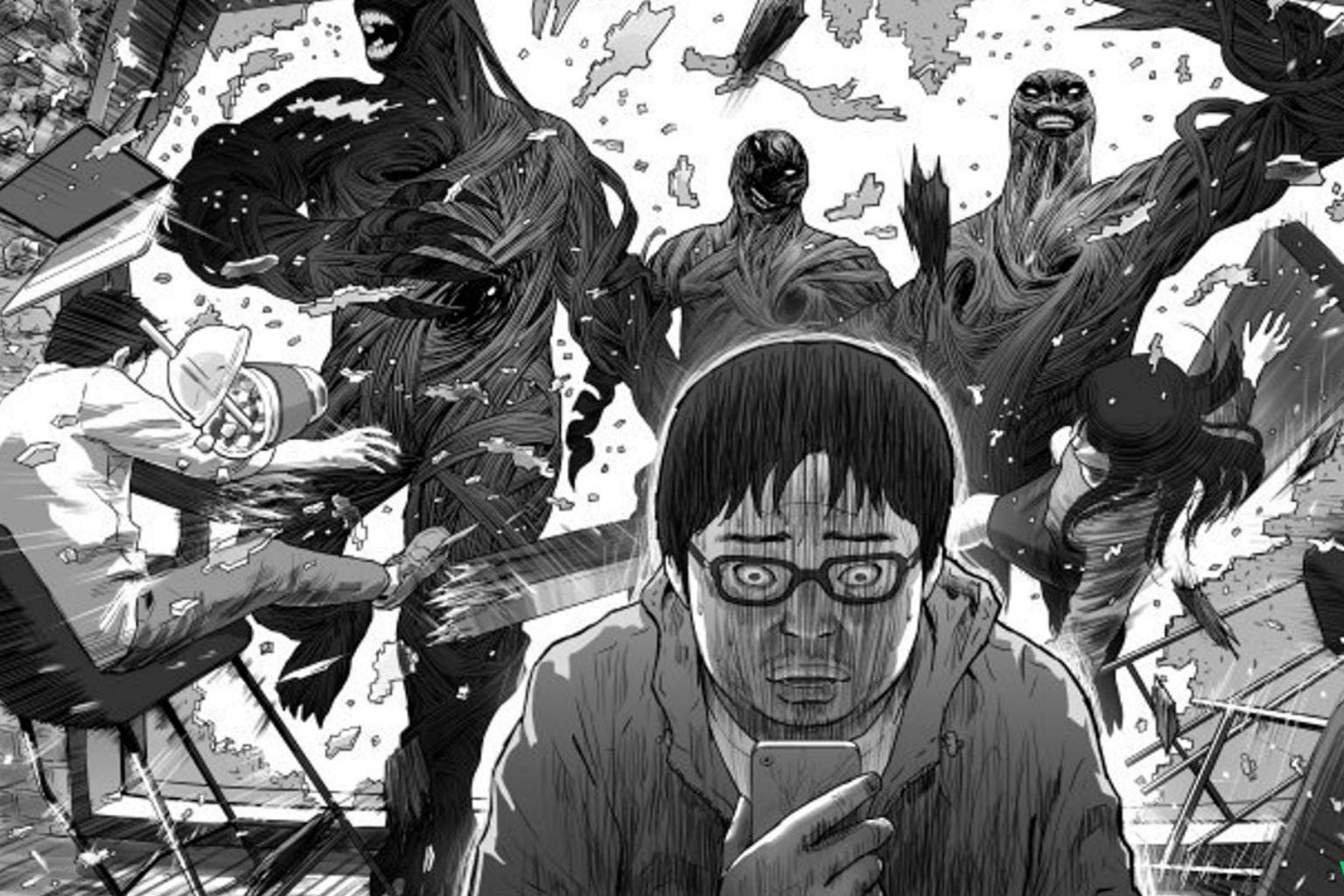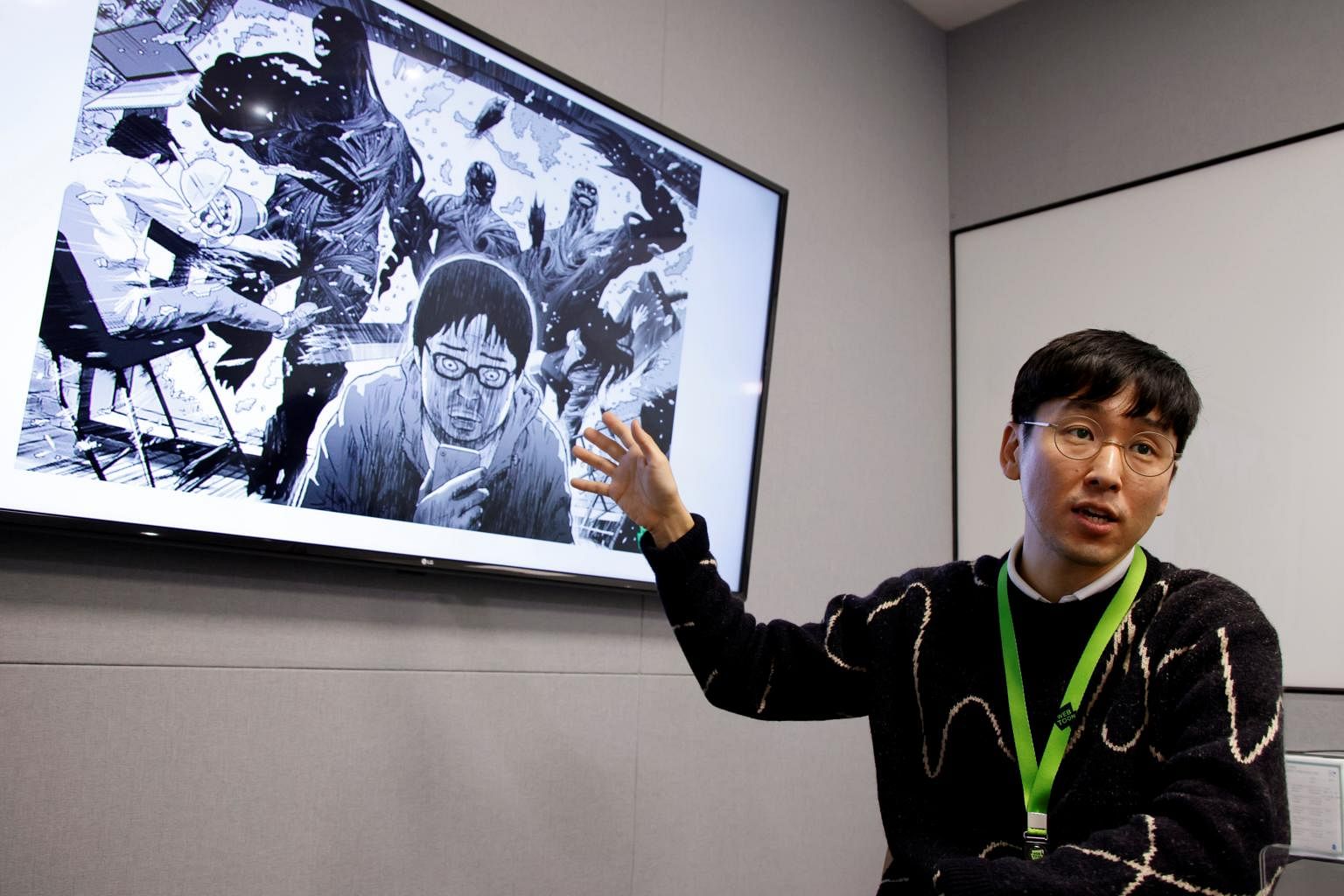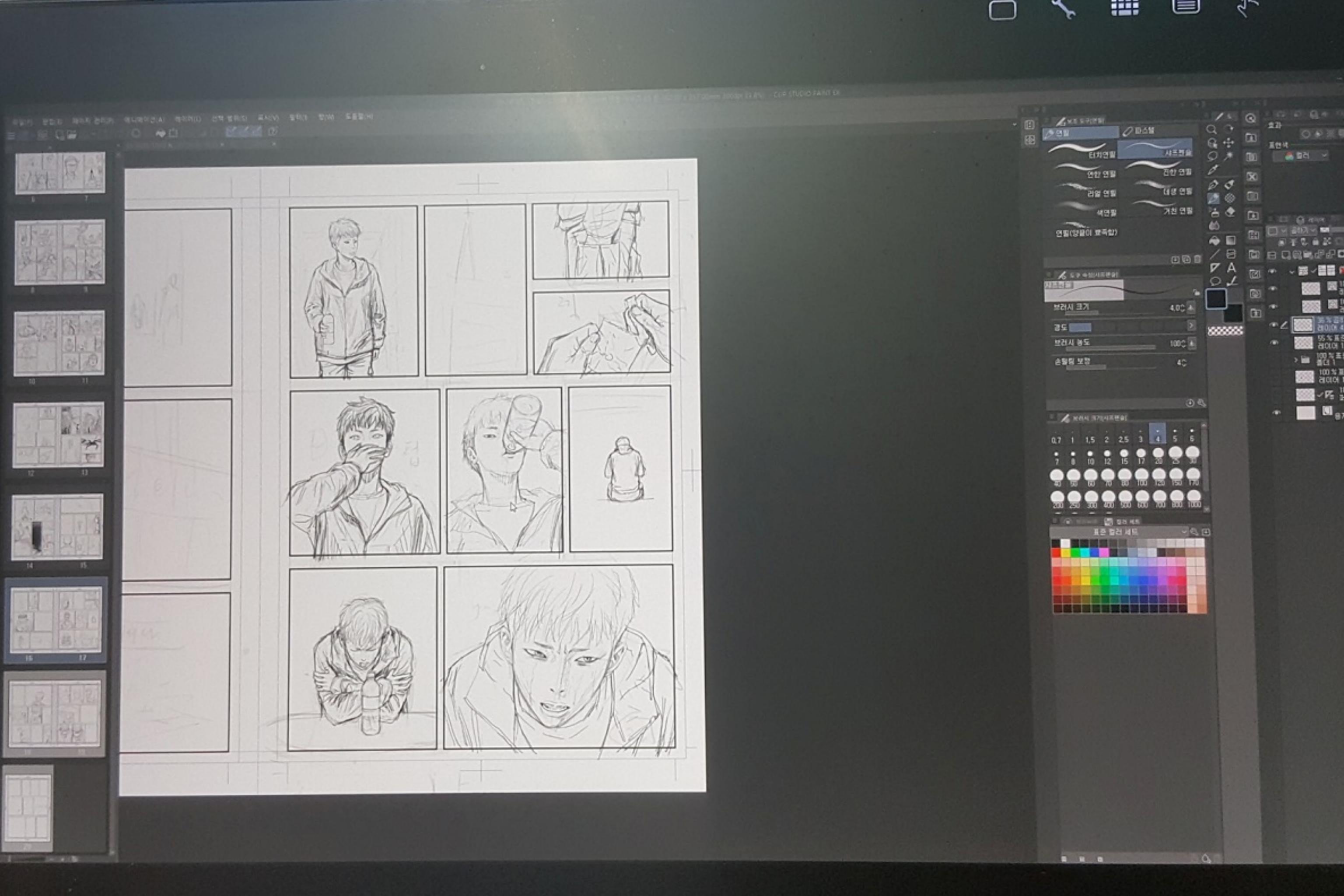South Korea's webtoons power streaming hits such as Hellbound
Sign up now: Get ST's newsletters delivered to your inbox

A scene of the webtoon ‘Hellbound’ that was adapted to a popular new Netflix series.
PHOTO: REUTERS
Follow topic:
SEOUL (REUTERS) - Netflix's most-watched series in late November, Hellbound, is making a splash on television, but it first appeared on much smaller screens as an online comic, or webtoon, optimised for smartphones.
The webtoon format, which began in South Korea two decades ago, has shaken up content creation for the movie industry around the globe. With relatively few overhead costs, webtoons have become a gold mine for tens of thousands of visual stories, with a growing number of adaptations on streaming services such as Netflix, Apple TV+ and Disney+.
And readership for webtoons themselves has become increasingly global.
"If a drama or movie fails, a bunch of people are in the red so they can't experiment in various ways. But here, when we fail, we fail alone. So we can experiment however we want," said Choi Gyu-seok, the artist and co-creator of The Hellbound webtoon. The other co-creator, Yeon Sang-ho - director of the 2016 hit zombie film Train To Busan - directed the series, in which monstrous beings appear from nowhere to incinerate people who have been condemned to hell.
In South Korea alone, there are more than 14,000 webtoons by 9,900 creators, according to data provider Webtoon Analysis Service.
Tech companies Naver and Kakao are facilitating adaptations and targeting global expansion through their webtoon units.
Naver Webtoon's IP Business head Lee Hee-youn said: "Our strength is that we have a lot of ongoing works. on many platforms, when a hit series is over, there aren't enough alternatives. We have hundreds of works that are live right now."
Each series usually has weekly updates, increasing the amount of material to draw from. Choi said: "It's a format you view in three minutes while waiting for your friend... so almost every scene must contain elements that can capture the reader. So there are a lot of ingredients to choose from when taking the source material to other formats."
For the creators - who on average make 48.4 million won (S$56,000) a year - the pay-off for getting a webtoon adapted can be huge. Only about 8 per cent of creators say their income has been substantially improved by adaptation rights, according to data from the Korea Creative Content Agency.
"In a month or two, I made three or four times the amount of money I could earn a year," Choi said about an adaptation of a previous webtoon. "It gave me freedom so I didn't have to immediately begin the next work."
Ownership of the intellectual property rights for an adaptation depends on the contract between the creator, platforms such as Naver and Kakao, and any agencies in the middle. Payouts can be a single-digit percentage of revenue, a minimum guarantee or a mix of the two, analysts said.
Webtoons' PC- and smartphone-specific innovations such as vertical scrolling instead of page-flipping are intuitive for people aged 24 or younger, who account for about 75 per cent of the 14 million active monthly Naver Webtoon readers in the United States as of September.
Naver's Webtoon app and Kakao's Tapas app are No. 2 and 3 in US downloads in Google Play's free comics app category. In Japan, Piccoma and Line Manga, backed by Kakao and Naver respectively, are No. 1 and 2.

Byron Lee, webtoon business team leader of Naver, speaks about Naver webtoon Hellbound at a company office in Seongnam, South Korea on Dec 1, 2021.
PHOTO: REUTERS
Mr Lee said Naver's global webtoon business has seen quarterly sales jump 79 per cent from a year ago as of July to September, and monthly active users grow from 50 million to 72 million in three years, with users outside South Korea far outweighing those within and global streaming services' adaptations helping to expand the market.
Webtoon creators work an average of about 10½ hours a day, six days a week. The grinding schedule means a concept can take as little as a week to move from drawing board to market.

Sketches of the webtoon Hellbound by Choi Gyuseok at his work room in Seoul on Nov 30, 2021.
PHOTO: REUTERS
Immediate audience reaction in the form of views, payments and comments means webtoons can reflect ongoing trends or attempt ambitious subject material.
The Netflix-backed adaptation of The Hellbound, which comments on human fallibility, cost 15 billion to 20 billion won to make, South Korean media reported.
"In the past, the industry was small, so there were limitations in the kind of adaptations. Now, streaming services have made possible the inflow of new readers globally and more investment, so they are asking for bigger ideas", such as settings in space instead of earth, said Hongjacga, creator of the webtoon Dr Brain, which was adapted for Apple TV+.
Mr Lee said 10 to 20 webtoons from its platform are expected to be remade into other media next year through partnerships with streaming services.

